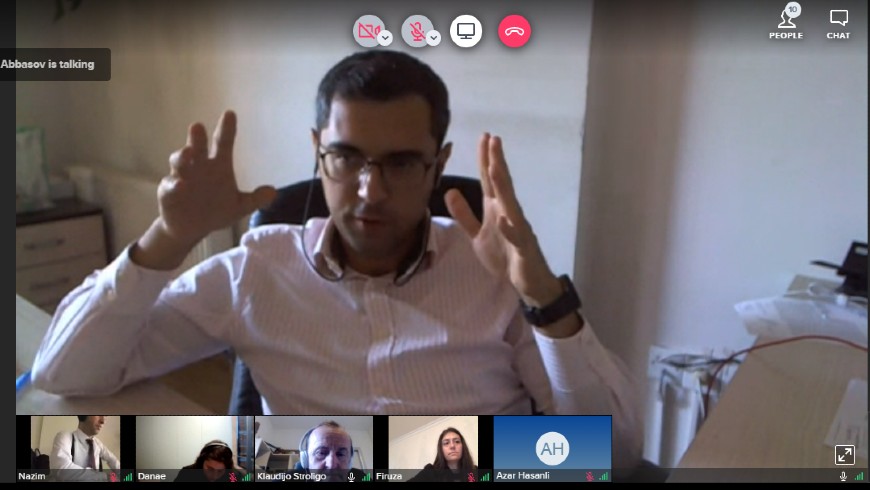In March 2020, the Council of Europe had responded to a request from Azerbaijani authorities to provide a legal opinion on the Law of the Republic of Azerbaijan on the Prevention of the Legalization of Criminally Obtained Funds or Other Property and the Financing of Terrorism, and two bylaws that regulate the implementation of international standards on targeted financial sanctions against terrorism, terrorist financing and proliferation of weapons of mass destruction. Following the recommendations provided, the Azerbaijani authorities drafted a new Law on Targeted Financial Sanctions and prepared amendments to the related provisions of their Criminal Procedure Code. The Council of Europe continued its support by reviewing the new law and related amendments, in September 2020, to ensure their compliance with international standards and best practices.
On 16 October 2020, the Project organised a consultation meeting (via videoconference) to further discuss the key findings and recommendations provided in the legislative analysis with representatives of the Azerbaijani Financial Monitoring Service and the Council of Europe expert. The meeting aimed to provide clarity on some key points related to the definitions, scope and objectives of the draft law, the role of certain state authorities, domestic listing and de-listing and supervision of the implementation of the draft law. All the aspects discussed during the meeting have been reflected in the final legal opinion, which aims to support the authorities to align the national legislation with international standards on anti-money laundering and countering the financing of terrorism, in relation to the implementation of targeted financial sanctions.
This activity was organised within the framework of the EU/CoE Partnership for Good Governance II Project on “Strengthening anti-money laundering and asset recovery in Azerbaijan” (PGG II-AZ) which is funded jointly by the European Union and the Council of Europe and implemented by the Council of Europe.





